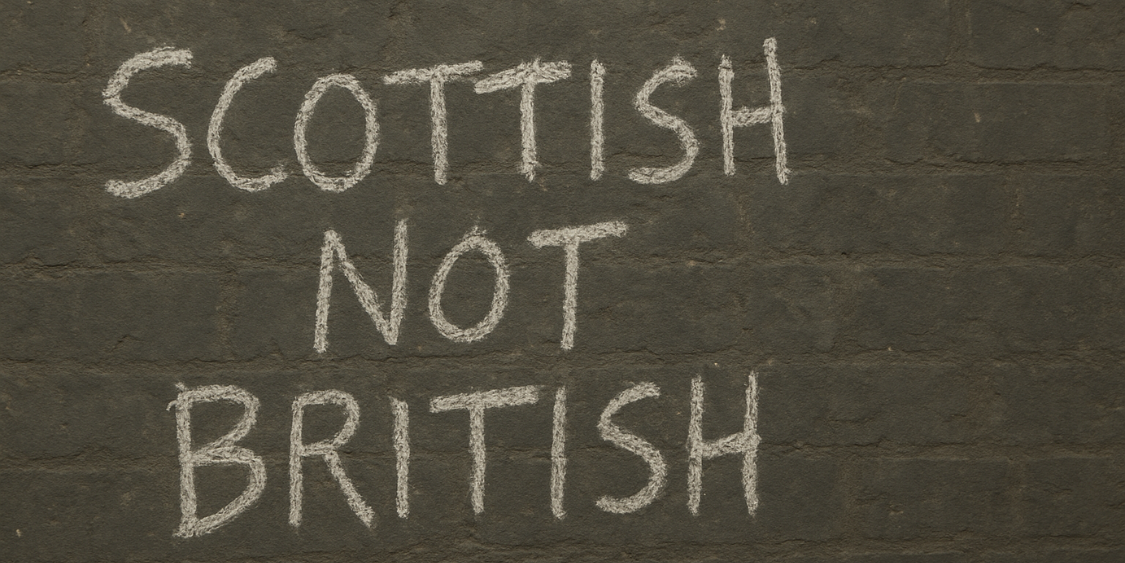
Scottish Independence will not go away until we treat Nationalism seriously
I have heard the SNP being written off so many times that it has become boring. Nearly as boring as the SNP’s own claims that one last heave etc…
When Lesley Riddoch and I shared a berth for many years on Monday morning’s Scotsman newspaper she was forever talking the SNP up, and I was forever pointing out peak SNP had been reached. While I believe I had the better of it she had a point; whatever was thrown at the SNP, from the proverbial kitchen sink to alleged leadership sex crimes that were disproven in court, to the party’s financial scandals (still due in court) and a male double rapist changing his sex to serve his sentence in a woman’s prison – the SNP kept bobbing back up like a political whack-a-mole.
Proclaiming the SNP and its cause of quasi-Scottish independence was finished became a regular sport after it lost the 2014 Independence Referendum. I never accepted the analysis for a moment.
Then came the cold shower corrective of the SNP winning all but three of Scotland’s 59 constituencies in the 2015 general election. Some sense of reality returned, at last people woke up to the fact the SNP is no ordinary political party, it is a movement. It is a many headed hydra, each spouting the cause but really having nothing to say about education, healthcare, housing or roads. It nurses grievances that can be centuries old and often invented (such as the Churchill sent tanks into Glasgow nonsense) and it will latch on to any moral crusade claiming Scottish exceptionalism.
Each time something has happened to excite British patriots the SNP is on its way out I have taken it as my duty to remind Scotsman readers (and hopefully the wider public) that while the SNP has suffered another setback the best friend of secession is complacency.
Here are the many occasions I have been told the SNP (for which read ‘independence’) is finished… Sturgeon losing her (inherited) overall majority in 2016 Holyrood elections, the SNP losing 21 seats in the 2017 general election, Salmond accused of sexual harassment in 2018, Salmond charged with 13 counts of sexual assault including attempted rape in 2020, Salmond then acquitted and a raging Nicola Sturgeon embarrassed, the resulting Holyrood inquiry in to the treatment of Alex Salmond declaring Sturgeon misled Parliament causing further shame but no resignation, Covid arrive in 2020-21 leading to claims the necessary economic and logistical response proved Scotland could never be independent, Sturgeon failing to achieve an SNP majority in 2021 Holyrood elections, Sturgeon’s shock resignation in 2023, Humza Yousaf being confirmed as First Minister (Kate Forbes winning would have been more of a problem), the blue forensic tent outside Sturgeon’s home in April 2023, the motorhome towed away from Sturgeon’s mother-in-law’s home, Humza Yousaf’s coalition collapsing in 2024 and his resulting resignation, John Swinney becoming First Minister – all these and more have given people cause to suggest the threat of independence is dead, we can now move on…
Take yourself back to early July last year, the general election was about to be held and Labour was riding the crest of a modest wave, the SNP looked on its uppers and so it proved. Labour returned to its position of largest party in Scotland with 37 MPs while the SNP lost 39. The consensus was Scottish Labour leader Anas Sarwar was going to be a shoo-in as first Minister following Holyrood’s 2026 elections. The end of the SNP was nigh.
There was just one problem, the election would be mid-term of the UK Labour Government. In all the joyous celebration of the SNP’s demise few were looking at how UK domestic politics would direct scrutiny on to Scottish Labour and every Scottish difficulty would become Labour’s fault.
Fast forward to the current polling and an undoubtedly rebooted yet dull John Swinney is now leading the strangely quieter SNP in the polls while Reform has overtaken the Conservatives and is jousting with Labour for second place. Holyrood may yet have a union-backing majority (although that’s not certain) but for Sarwar to become First Minister will require the mother of all Holyrood coalitions or confidence and supply agreements.
Without such an arrangement, after nineteen years of SNP rule, Scotland will face another five years of the SNP being in power, taking it to 2031 before the nationalists might at last be removed. A great deal of water will pass under the Forth bridges by then.
Indeed we are already seeing the impact of Donald Trump’s second presidency throwing up political consequences we cannot predict with any certainty – such as Trump’s attacks on Canadian political sovereignty giving Mark Carney’s Liberals the prospect of winning this month’s general election by playing the patriotic card and wrapping themselves in the Canadian flag.
Be under no illusions, the SNP will use every Westminster policy gamble (such as cutting pensioners’ winter fuel payments), every international incident (such as another Ukraine or Gaza) to strut the stage, blame Britain and wax lyrically about the great dream.
Until British politicians stop treating the SNP as just another party and actually challenge Scottish nationalism as a movement – looking to weaken it not just politically, in economic and social justice terms, but historically and culturally too, every new generation of voters will be tempted to support the dream of creating a completely new country out of one that is now almost 320 years old. That’s older than most countries in the world, older than India, Germany, the United States, Spain, Italy, Australia and countless others that we now think of as ‘old’ but were formed after our 1707 Acts of Union, many only after the first and second world wars.
The nationalist dream for now may appear dead, but complacency and appeasement will allow it a way back.
Brian Monteith, former MSP for the Mid Scotland and Fife region (1999 to 2007)

